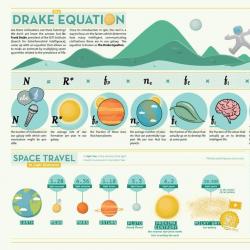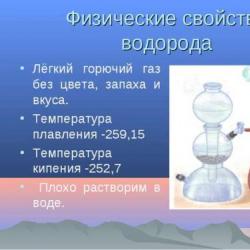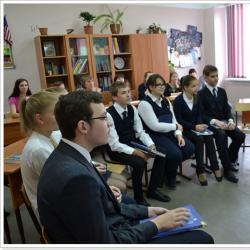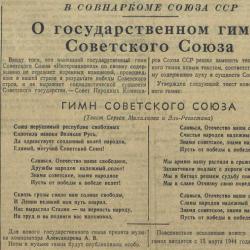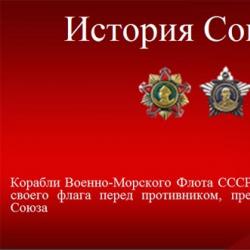Preparing for the OGE without a tutor. Preparing for the OGE Is it possible to prepare yourself?
The OGE is the main exam for all 9th graders in the country. As we know, students will have to take two compulsory subjects (mathematics and Russian) and two elective subjects. The results of this exam will determine whether the student can proceed to grade 10 or enter a technical school (college), or whether he will only receive a certificate next year. This means preparing for the OGE is a very serious stage.
Let's start off with, What do you need to get permission to take the OGE? The following are allowed to take the exam:
Graduates of 9 classes of general education institutions of the Russian Federation with annual grades in all subjects not lower than “3”;
Graduates with one “2”, with the condition that they will take an exam in this subject;
Foreign citizens, stateless persons, refugees and internally displaced persons studying in a general educational institution;
Graduates from previous years who did not receive a certificate.
Accordingly, in order to successfully pass the OGE, it is imperative to fill gaps in knowledge and adjust grades in those subjects in which the student has 2 grades. 
Rules for preparing for the OGE with excellent marks:
1. You should start preparing in the fall, because Preparing for 4 subjects at once takes a lot of time.
2. Efficiency does not equal constant cramming. Some students make a huge mistake when they start studying the material, no matter how much they understand it or how tired they are. “The teacher told me that I need to study at least an hour a day!” - they say and after a few months they lose strength. But the main secret of success is in the correct choice of duration and number of classes! Study for the exam only when you have had enough sleep and are not too tired. Prepare for no more than 1 hour, then be sure to take a break. Otherwise, you will get tired, but you won’t remember anything.
3. Choose one tutor. Of course, we are not talking about agreeing to take classes with someone who doesn’t suit you and “endure” the class for a whole year. Quite the opposite, in the fall, start choosing the best tutor to prepare for the OGE, whose teaching style, experience and student results are completely satisfactory to you. Classes with a tutor should give you strength to move forward, not fatigue and hatred of the subject! On TutorOnline, you can take 10-15 minute lessons with different teachers, ask them to explain some small topic and decide whether a particular tutor is right for you or not. You won't have to explain why you didn't schedule a second lesson with him. This way you can easily and quickly find your ideal teacher, whose recommendations you will be happy to follow all year. The tutor will definitely conduct testing and identify your gaps, which he will help you eliminate step by step.
4. Don't waste time traveling, use the time to review. If you think about it, many students lose 2 hours of time traveling to the tutor and back. But it is much better to save energy and spend 1 hour reviewing the material before class or completing homework assigned by the tutor. Proper distribution of time and effort is the best way to prepare for the OGE with maximum results!
Do you want to pass the OGE with excellent marks? Sign up with the most experienced online tutors and start classes now!
website, when copying material in full or in part, a link to the source is required.
As you know, an exam is not just a test of knowledge, but a test of knowledge under stress. At the same time, there is a point of view among doctors that up to 90% of all diseases can be associated with stress. From this we can conclude that exams do not improve health at all, but quite the contrary. Indeed, numerous studies show that during preparation and passing exams there is intense mental activity, extreme limitation of motor activity, disturbance of rest and sleep patterns (superficial, restless sleep), and emotional experiences. All this leads to overstrain of the nervous system and negatively affects the general condition and resistance of the growing organism.
The essence of the psychophysiological stress reaction lies in preparatory activation, which creates readiness for physical stress, and it is this physical activity that is excluded by the exam environment.
What needs to be taken into account in order to successfully overcome the period of preparation and passing exams without harm to your health?
Exam preparation
- First, prepare a place for studying: remove unnecessary things from the table, conveniently arrange the necessary textbooks, manuals, notebooks, paper, pencils, etc.
- You can introduce yellow and purple colors into the interior of the room, as they increase intellectual activity. For this, some picture in these tones or a print is sufficient.
- Make a lesson plan. First, determine whether you are a “night owl” or a “lark”, and depending on this, make the most of your morning or evening hours. When making a plan for each day of preparation, it is necessary to clearly define what exactly will be studied today. Not in general: “I’ll study a little,” but what specific sections and topics.
- Start with the most difficult one, with the section you know the worst. But if it’s difficult for you to “swing,” you can start with the material that is most interesting and enjoyable to you. Perhaps you will gradually get into a working rhythm, and things will go well.
- Alternate classes and rest, say, 40 minutes of classes, then a 10-minute break. At this time you can wash the dishes, water the flowers, do exercises, and take a shower.
- There is no need to strive to read and memorize the entire textbook. It is useful to structure the material by drawing up plans, diagrams, preferably on paper. Outlines are also useful because they are easy to use when reviewing material briefly.
- Take as many different published tests on the subject as you can. These training sessions will familiarize you with the construction of test items.
- Practice with a stopwatch in your hands, time the tests (for tasks in part A, on average it takes 2 minutes per task).
- When preparing for exams, never think that you will not cope with the task, but on the contrary, mentally paint yourself a picture of triumph.
- Leave one day before the exam to review all the answer plans and once again dwell on the most difficult questions.
On the eve of the exam
- Many people believe that in order to fully prepare for the exam, only one, the last night before it, is enough. It is not right. You are already tired, and there is no need to overwork yourself. On the contrary, in the evening, stop getting ready, take a shower, take a walk. Get as much sleep as possible so that you can wake up rested, feeling healthy, strong, and in a fighting spirit. After all, an exam is a kind of struggle in which you need to prove yourself, show your capabilities and abilities.
- You must arrive at the exam site without being late, preferably half an hour before the start of the test. You need to have a pass, a passport (not a birth certificate) and several (in reserve) gel or capillary pens with black ink.
- If it's cold at school, don't forget to dress warmly, because you'll be sitting for the exam for 3 hours.
During testing
- At the beginning of testing, you will be given the necessary information (how to fill out the form, what letters to write, how to code the school number, etc.). Be careful!!! The correctness of your answers depends on how carefully you remember all these rules!
- You fill out the answer form (registration area, answers themselves, etc.) only in block letters! Pay attention to how some letters are written, for example, the letter "a". Some of the information is recorded in coded form, which you will be told before the test begins.
- Examination materials consist of three parts: A, B, C:
- In the tasks of part A you need to choose the correct answer from several proposed options. In the first part of the answer forms with the heading “Task numbers with a choice of answer from the proposed options,” you must, under the task number, mark with an “X” the cell whose number corresponds to the number of the selected answer.
- in the tasks of part B the answer is given in the form of one word or number. In the answer form for such tasks there are fields with the heading “Short answers to tasks without answer options for choice”, where you carefully enter your answer (word or number) next to the task number (in block letters). Writing formulas or mathematical expressions, any verbal headings or comments is not allowed.
- In the tasks of part C, a detailed answer is given in the form of a solution to a problem or a short story, which is written down on a separate form. It is very important to write down the individual number of the main answer form (pink) in the special field in the upper right corner of the specified form. In this case, no additional information about you (last name, first name, class) is written.
- Corrections in the answer form are highly undesirable. If, nevertheless, corrections are unavoidable, then remember that they can only be made in tasks of type A, using the reserve fields with the heading “Cancel erroneous labels”. Corrections are made only according to the instructions of the organizers. The number of allowed corrections is no more than six.
- There may be some changes in the procedure for filling out forms, of which you will be informed.
- Upon receiving the test results, you have the right to familiarize yourself with the tested work and, if you do not agree with the assessment, you can file an appeal (within 3 days after the announcement of the result) to the conflict commission.
Here are several universal recipes for more successful testing tactics.
- Focus! After completing the preliminary part of the test (filling out the forms), when you have clarified all the points that you do not understand, try to concentrate and forget about those around you. For you, there should be only the text of the tasks and the clock regulating the time for completing the test. Hurry up and take your time! Strict time limits should not affect the quality of your answers. Before entering the answer, re-read the question twice and make sure that you correctly understand what is required of you.
- Start easy! Start answering those questions that you don’t doubt your knowledge of, without stopping at those that may cause long thoughts. Then you will calm down, your head will begin to work more clearly and clearly, and you will get into a working rhythm. You will seem to be freed from nervousness, and all your energy will then be directed to more difficult questions.
- Skip! We must learn to skip difficult or incomprehensible tasks. Remember: in the text there will always be questions that you will definitely be able to cope with. It’s just stupid to lose points just because you didn’t get to “your” tasks, but got stuck on those that cause you difficulties.
- Read the task to the end! Haste should not lead to you trying to understand the terms of the task “from the first words” and completing the ending in your own imagination. This is a surefire way to make embarrassing mistakes on the easiest questions.
- Think only about the current task! When you see a new task, forget everything about the previous one. As a rule, tasks in tests are not related to each other, so the knowledge that you applied in one (for example, already solved by you), as a rule, does not help, but only interferes with concentrating and correctly solving a new task. This advice also gives you another invaluable psychological effect - forget about failure in the last task (if it turned out to be too tough for you). Just think that every new task is a chance to score points.
- Eliminate! Many tasks can be solved faster if you do not immediately look for the correct answer, but consistently eliminate those that are clearly not suitable. The elimination method allows you to ultimately focus on just one or two options, rather than all five or seven (which is much more difficult).
- Plan two laps! Calculate the time so that in two-thirds of the allotted time you will go through all the easy tasks (“first round”). Then you will have time to score maximum points on those tasks, and then calmly return and think about the difficult ones that you initially had to skip (“second round”).
- Check it out! Leave time to check your work, at least to have time to skim your eyes and notice obvious errors.
- Guess! If you are not sure about the choice of answer, but intuitively you can prefer one answer to others, then you should trust your intuition! At the same time, choose the option that, in your opinion, has a high probability.
- Do not worry! Strive to complete all tasks, but remember that in practice this is unrealistic. Keep in mind that test tasks are designed for the maximum level of difficulty, and the number of tasks you solve may well be sufficient for a good grade.
The question of how to pass the OGE in history concerns few people, because due to the complexity of the subject and the volume of material, few people after finishing 9th grade find the courage to take this exam. History is listed among the elective disciplines, while mathematics and the Russian language are compulsory. In total you will have to pass four exams.
Structure and assessment
The peculiarity of the OGE in history is that children have time to study historical periods up to the 19th century, and the compilers of the exam included the 20th century in the task. General information for the 2018 OGE does not differ from last year’s version. There are two parts with 35 tasks (30 and 5, respectively):
- The part where you need to choose the correct option, or answer briefly, following the sequence of numbers or words
- The part where a detailed answer is required.
To overcome the minimum threshold and get a C in the OGE history, it is enough to score 13 points by completing, for example, the first 13 tasks. Having answered the first 30 questions correctly, you can already qualify for an A, which will require 35 points and above, up to a maximum of 44 points.
How to properly plan your preparation?
Everyone knows that by deciding to prepare for an exam in advance, you can make your life much easier during the exam. Therefore, first of all, it is important to think about how to prepare for the OGE in history. You can do this yourself, based on the material you have learned and lessons at school. It is better to study from scratch in appropriate courses or with a tutor.
Whatever you decide, good preparation requires hard work and planned actions, which include the following:
- determining the current level of knowledge;
- drawing up the right course and setting goals for the future;
- selection of high-quality manuals and collections for preparation (necessarily developed and approved by FIPI).
Since the structure of the OGE in history in 2018 does not have any changes or innovations, you can prepare using any of last year’s tests for 9th graders in this subject. 
Particular attention should be paid to the volume of information: now there is no need to overload yourself with additional and complex data. It is best when the topics are divided by historical periods, and appropriate thematic collections are used to quickly consolidate them. It is worth purchasing a collection with full-fledged options, but solving them will be easier and more correct after mastering the entire course of Russian history, otherwise you will only get confused.
Also, do not get carried away with diagrams and tables, use them only as assistants. Be sure to pay attention to maps and images; tasks with them usually cause problems for schoolchildren.
By following these tips and dedicating several hours to studying and improving, studying 2-3 days a week, you will stop worrying about how to pass the OGE in history, and a good result will not be long in coming. 

The day of passing the general compulsory exam for 9th grade students - the GIA in mathematics - is rapidly approaching, which means it’s time to think about preparing for it. From this article you will learn everything about the most effective ways of learning - from preparation from scratch to various options for distance courses. Please note that the result of passing the GIA in mathematics is included in the certificate of incomplete secondary education, and you must receive a positive grade (“3” or higher) to transfer to grade 10, and in order to get into a specialized physics and mathematics class, you must get a high score. If the child is going to enter a technical school, then the results of this testing will be taken into account during admission. Therefore, be extremely serious about the General State Exam (OGE). So, there are the following main options for preparing for the State Examination in mathematics:
- independent preparation for the OGE (GIA);
- training with a tutor;
- distance learning;
- hybrid option.
How to choose the optimal form of training?
First of all, you should evaluate your knowledge and capabilities, and from the analysis, draw conclusions about the strategy for preparing for the upcoming OGE. Let's consider the possibility of self-study to prepare for the GIA in algebra. This method is suitable for children who meet the following criteria:
- excellent student (at least in algebra);
- the ability to systematically and independently work with textbooks on mathematics and online material;
- having the ability to independently evaluate one’s knowledge and set priority learning objectives.
 As you can see, this approach is not suitable for all students. The need not only to learn mathematics, but also to plan educational activities can become an overwhelming task for children accustomed to the conditions of a classical high school.
As you can see, this approach is not suitable for all students. The need not only to learn mathematics, but also to plan educational activities can become an overwhelming task for children accustomed to the conditions of a classical high school.
If you feel that this method of preparing for the OGE (GIA) suits you well, then the next 2 sections are entirely for you. Otherwise, skim through their contents and move on to the next one.
We study the structure of the OGE (GIA)
First, study the structure and rules of the mathematics exam (OGE / GIA). A good understanding of the structure will allow you to optimally set learning priorities and manage your time as efficiently as possible when studying independently.
All exercises are divided into 2 parts. The first part contains 20 tasks of basic complexity, and the second contains 4 of increased and 2 of high complexity (6 in total). Each task, in turn, can relate to one of three modules: real mathematics, algebra and geometry. Parts structure:
- The first part of the OGE consists of tests of basic complexity, where the examinee must select the number of the correct option from those listed or enter the correct answer in the field. This part contains 8 problems from the Algebra module, 5 from the Geometry module and all 7 problems from the Real Mathematics module. 90 minutes are allotted to solve the tasks of this part.
- To get the maximum possible points for the exercises in the second part, you should provide a detailed solution along with the correct answer. In this part of the OGE, all exercises relate to the modules “Algebra” and “Geometry”, 3 options for each, including 1 high level and 2 of increased complexity, respectively (total 4 advanced and 2 high levels). You have 150 minutes to complete this part.
In total, 4 hours of real time are allocated to solve all 26 tasks.

Preparing for the main state exam
Now that you have an idea of the structure of the GIA in mathematics, you should do thematic preparation. Work through several test options and a dozen different problems in 9th grade algebra and get an idea of your strengths and weaknesses for individual types of problems. Start consistently studying problematic topics, devoting more time to the most difficult tasks, in your opinion. On the contrary, when you take the real exam, tackle the easiest tests and assignments as quickly as possible first, leaving as much time as possible for the more difficult ones.
One of the effective educational techniques is keeping a separate notebook with formulas in mathematics to prepare for the State Exam. Frequent access to the same data allows the brain to remember the necessary information for a long time. Therefore, be sure to write down and frequently use the following formulas and tables in order to understand them as best as possible (since it is prohibited to use any reference materials):

For successful preparation, allocate at least 6 hours a week, with at least 1 hour every 2 days. Your cognitive (intellectual) abilities should always remain in good shape so that the acquired knowledge in mathematics is consolidated as effectively as possible.
In general, to prepare on your own, all you need is a working computer and an Internet connection. You will find all the necessary educational materials in mathematics on the websites, including many trial tasks for self-testing. Of course, regular textbooks will also be useful, and for some it will be even easier to work with them. Pay attention to the service for completing GIA tasks of past years from Yandex https://ege.yandex.ru.
Preparation with a specialist
As a rule, for most children and people in general, working with a specialist is much more effective. This could be a teacher in a group, an individual tutor or a tutor who does not so much teach as guide. Of course, if you choose this option, you will have to pay for the services, but the result becomes more predictable for the better.
If a child has good grades in algebra and geometry and understands most topics, then all he needs is more practice in solving problems and strengthening theoretical knowledge in some sections. In this case, group classes are an excellent option. Firstly, they will cost significantly less. Secondly, if the group chosen is not “motley”, but consists of children of the same level of mathematical development, then the environment itself will become a good motivator.
The only option for selecting a tutor is if the child, due to various circumstances, is forced to prepare from scratch for the OGE or GIA in mathematics. Moreover, it is an individual trajectory that is necessary. Group training is ineffective for those who are unsuccessful in certain disciplines. They need a unique approach that takes into account character and developmental characteristics.
Who and how to choose
 In the pre-Internet era, the main way to find tutors was word of mouth, that is, searching through friends. Or they unofficially paid for the services of their own school teachers for conducting individual additional classes. These methods of preparing for the OGE can still be used, but thanks to modern technologies, you are no longer limited in choosing a quality specialist by your geography.
In the pre-Internet era, the main way to find tutors was word of mouth, that is, searching through friends. Or they unofficially paid for the services of their own school teachers for conducting individual additional classes. These methods of preparing for the OGE can still be used, but thanks to modern technologies, you are no longer limited in choosing a quality specialist by your geography.
Today, there are many online portals for selecting math tutors, among which you can find teachers and professors from famous universities, and you can choose, for example, a tutor working at the institute where your child plans to enroll. On these online portals you can choose a specialist from your city for face-to-face classes or give preference to distance lessons. From the point of view of children's psychology, full-time education will be more effective, but, as a rule, it costs more. For distance learning courses to prepare for the State Examination, you must have the skills of an experienced computer user, regular access to the Internet and a webcam.
Carefully study the resumes of tutors posted on websites. At the first meeting with a tutor, regardless of where it takes place, online or in reality, the presence of both the student and the parent is mandatory. It is important for a parent to feel, like an adult, the pedagogical skills of the candidate.
Pay attention to the clarity of diction, personality traits in personal communication and evaluate the overall appearance. The tutor should radiate calm and self-confidence, like a teacher, and look neat and clean.
Be especially attentive to those whose faces express long-term general fatigue, anxiety or excitement. A person with unresolved personal problems, as a rule, cannot work to his full potential, because other thoughts bother him.
 Of course, there are always exceptions, so be careful and don’t miss an experienced specialist who, having gotten used to life’s difficulties, despite everything, loves his students very much and creates excellent conditions for them.
Of course, there are always exceptions, so be careful and don’t miss an experienced specialist who, having gotten used to life’s difficulties, despite everything, loves his students very much and creates excellent conditions for them.
After meeting with the tutor, ask your son or daughter about his impressions. It is very important that the child does not find anything repulsive in the teacher’s personality. Personal trust and respect between student and teacher will be the key to effective learning and getting a high score on the OGE. Summarizing what has been said, we once again note important nuances that should be paid attention to when organizing the process of preparing a student for an important exam:
- level of initial training in mathematics;
- his psychological capabilities for learning. The less the student’s ability to learn, the more professional the teacher should be;
- available information from friends about tutors in your locality;
- the student’s ability to learn online;
- the listener's ability to learn effectively in a group.
You can find a tutor for face-to-face or online classes by clicking on the following links:
Specialized courses
 Another option is universal courses. They are provided by companies and usually through websites. There are also options for face-to-face classes. They are held for groups in which there is usually no active interaction between participants, and video lectures are conducted simultaneously for everyone, and questions are asked in the chat. The programs of these courses are already planned and divided into video lessons (or online lectures) and theoretical material with tasks for independent completion. You can watch the lesson recording later if you missed the live broadcast or signed up for the course after it started.
Another option is universal courses. They are provided by companies and usually through websites. There are also options for face-to-face classes. They are held for groups in which there is usually no active interaction between participants, and video lectures are conducted simultaneously for everyone, and questions are asked in the chat. The programs of these courses are already planned and divided into video lessons (or online lectures) and theoretical material with tasks for independent completion. You can watch the lesson recording later if you missed the live broadcast or signed up for the course after it started.
The learning dynamics can be checked by a specialist. To do this, the child must complete tasks online once a week (or according to another schedule) or attach a file with the work done on a special form for submitting results. Sometimes you can receive comments from the teacher on solved problems, indicating topics that should be repeated. The prices for such courses are most often affordable, since preparation is carried out in groups, and the child does the bulk of the practical work independently. Training is conducted systematically, homework is required, which creates a meta-structure for the optimal distribution of time and effort.
To understand what universal courses are, consider the structure of the course “Mathematics. Preparation for the OGE (State Examination), 9th grade,” which can be completed on the educational services portal http://foxford.ru for a reasonable fee.

As mentioned above, Foxford issues a certificate for any of its courses, and even the GIA in mathematics is no exception. This certificate does not have any functional benefit, since it is not taken into account by government agencies, but the child will be pleased.
To summarize, it should be said that education at a young age has a very fundamental effect on the development and success of an individual, therefore you need to choose and organize preparation courses for the OGE in mathematics for your children in the most careful manner. Take into account all the nuances, understand different approaches to pedagogy, carefully feel and take the needs of children seriously - only in this way can you help him get through the first, dependent part of his life.
The OGE is an important stage for every ninth-grader, because according to its results, the student either goes on to study in the 10th grade, or can become a student in vocational educational institutions. If previously students took the State Exam, which was more like a standard exam, then the modern main state exam is more like a trial version of the Unified State Exam, since all tasks are completed in a similar form. Many people wonder whether it is worth using the services or preparing for the exam on their own.
How to properly prepare for the OGE?
At the moment, ninth-graders take an exam in four disciplines - two compulsory subjects (Russian language and mathematics), as well as two more electives. The test program includes tasks from the entire school course, so it is important to thoroughly review all the material studied. Various reference books that you can buy also come to the rescue. In addition, it is worth solving standard examples in mathematics, since, despite the test nature of the questions, most of them will be in the form of problems, and in order to choose the correct answer, you need to solve it correctly in a draft and make correct calculations.
As for the Russian language, you should first repeat all the rules regarding the spelling of words and the use of punctuation marks. Particular attention should be paid to the structure of the essay, because it gives the lion's share of points on the OGE.
Features of some disciplines
Some elective subjects have non-standard tasks, for example, an experimental part is included in the physics exam. The same applies to chemistry, but there you can do without a real experiment. At the OGE in a foreign language, you will need to demonstrate your oral speech, but in computer science, tasks are completed on personal computers.
Is it possible to prepare yourself?
Of course, every student can take a responsible approach to preparing for the OGE, study mountains of methodological literature and repeat all the rules. But the efficiency of such work is 50%. The main reason lies in the fact that if some material was incomprehensible, then there is no one to explain it, and it is also impossible to check the correctness of the algorithm for solving the task yourself. In this case, a qualified tutor would be an ideal option. He will help to eliminate all gaps in knowledge as soon as possible, will be able to point out typical mistakes, and will also present all the material in an accessible manner so that the OGE can be passed with the highest grade.

